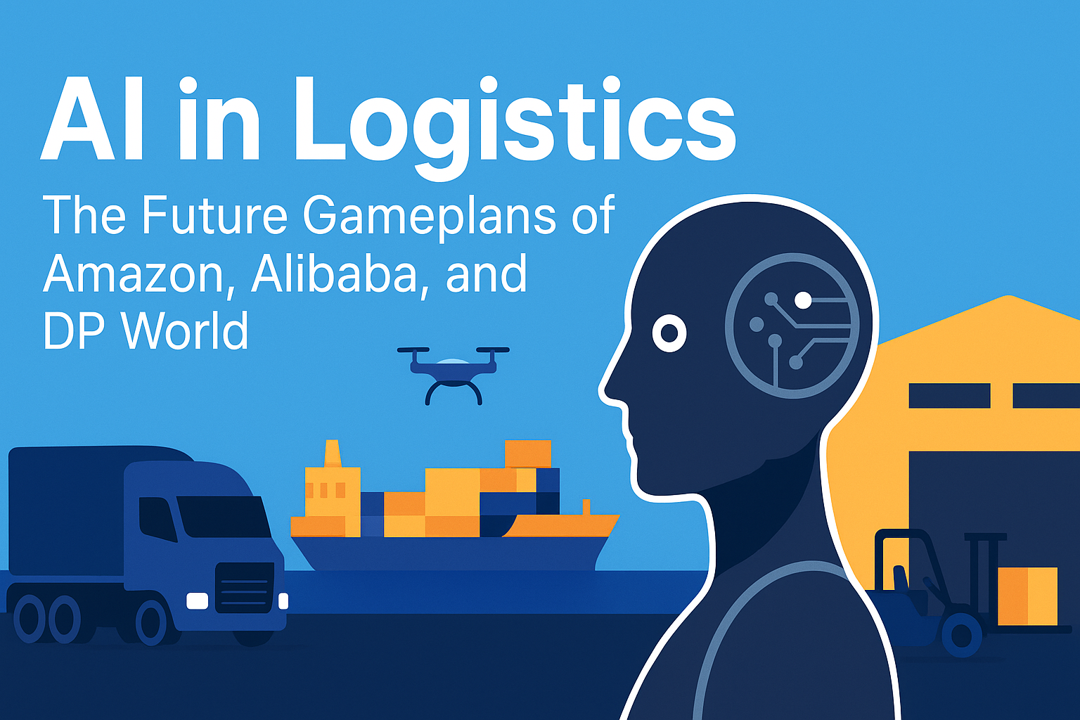
Post by : Meena Rani
Artificial intelligence (AI) is rapidly reshaping global logistics, creating smarter, faster, and more efficient supply chains. Industry giants such as Amazon, Alibaba, and DP World are leveraging AI to gain a competitive edge, streamline operations, and enhance customer satisfaction. From predictive analytics and autonomous vehicles to warehouse robotics and smart delivery systems, AI is becoming the backbone of modern logistics.
In this article, we examine how these global leaders are incorporating AI into their logistics strategies, the technologies they are implementing, and what the future holds for the logistics industry.
AI in logistics is not just about automation; it’s about intelligent decision-making. By analyzing massive volumes of data, AI can predict demand, optimize routes, monitor fleet performance, and anticipate equipment failures. Key applications include:
Amazon has pioneered the use of AI and robotics in its warehouses. The company’s Kiva robots transport goods across fulfillment centers, reducing manual labor and speeding up order processing. AI algorithms determine the optimal placement of inventory, ensuring faster retrieval and packing.
Amazon uses AI to forecast demand in real-time and dynamically allocate inventory to warehouses closest to customers. This predictive system helps Amazon achieve same-day and next-day deliveries efficiently.
The company is testing drone delivery via Prime Air and autonomous delivery vans, which rely on AI for navigation and obstacle detection. These technologies aim to reduce delivery times, cut costs, and enhance safety.
Alibaba’s logistics arm, Cainiao Network, employs AI to optimize supply chains across China and globally. The network integrates real-time data from warehouses, shipping partners, and delivery personnel to ensure seamless operations.
Alibaba uses AI-driven robots for picking, sorting, and packaging goods. These robots communicate with warehouse management systems to reduce errors and improve efficiency.
Alibaba deploys AI algorithms to optimize last-mile delivery routes for couriers, factoring in traffic, weather, and package priority. The company has also experimented with delivery drones in rural areas, making deliveries faster and more cost-effective.
DP World, a leading global port operator, integrates AI into port management to streamline cargo handling. Automated cranes, AI-driven gate systems, and predictive analytics help minimize congestion and speed up container movement.
AI sensors and machine learning models monitor port equipment to detect maintenance needs before failures occur. This predictive approach reduces downtime and operational costs.
By analyzing shipping patterns, DP World leverages AI to optimize vessel scheduling, storage, and routing. This helps improve efficiency for clients and partners, ensuring smoother global trade operations.
The next decade will likely see widespread adoption of autonomous trucks, ships, and drones powered by AI pilots and navigation systems. These fleets promise faster, safer, and more cost-effective delivery solutions.
AI-driven insights will help logistics managers make smarter decisions, from inventory placement to dynamic route adjustments. This intelligence reduces costs, improves service levels, and allows companies to respond faster to market fluctuations.
AI is no longer an experimental technology in logistics—it’s a core component of global supply chains. Companies like Amazon, Alibaba, and DP World demonstrate how AI can transform logistics, from warehouses to ports to last-mile delivery. By integrating predictive analytics, autonomous systems, and smart robotics, these industry giants are setting the blueprint for the future of transportation and trade.
For businesses and consumers alike, AI-driven logistics promises faster deliveries, reduced costs, and smarter, more transparent
#ArtificialIntelligence #AIinLogistics #SmartSupplyChain #AutonomousVehicles #WarehouseAutomation #PredictiveAnalytics #AIinShipping #LastMileDelivery #RoboticsInLogistics #SmartWarehousing










Advances in Aerospace Technology and Commercial Aviation Recovery
Insights into breakthrough aerospace technologies and commercial aviation’s recovery amid 2025 chall

Defense Modernization and Strategic Spending Trends
Explore key trends in global defense modernization and strategic military spending shaping 2025 secu

Tens of Thousands Protest in Serbia on Anniversary of Deadly Roof Collapse
Tens of thousands in Novi Sad mark a year since a deadly station roof collapse that killed 16, prote

Canada PM Carney Apologizes to Trump Over Controversial Reagan Anti-Tariff Ad
Canadian PM Mark Carney apologized to President Trump over an Ontario anti-tariff ad quoting Reagan,

The ad that stirred a hornets nest, and made Canadian PM Carney say sorry to Trump
Canadian PM Mark Carney apologizes to US President Trump after a tariff-related ad causes diplomatic

Bengaluru-Mumbai Superfast Train Approved After 30-Year Wait
Railways approves new superfast train connecting Bengaluru and Mumbai, ending a 30-year demand, easi